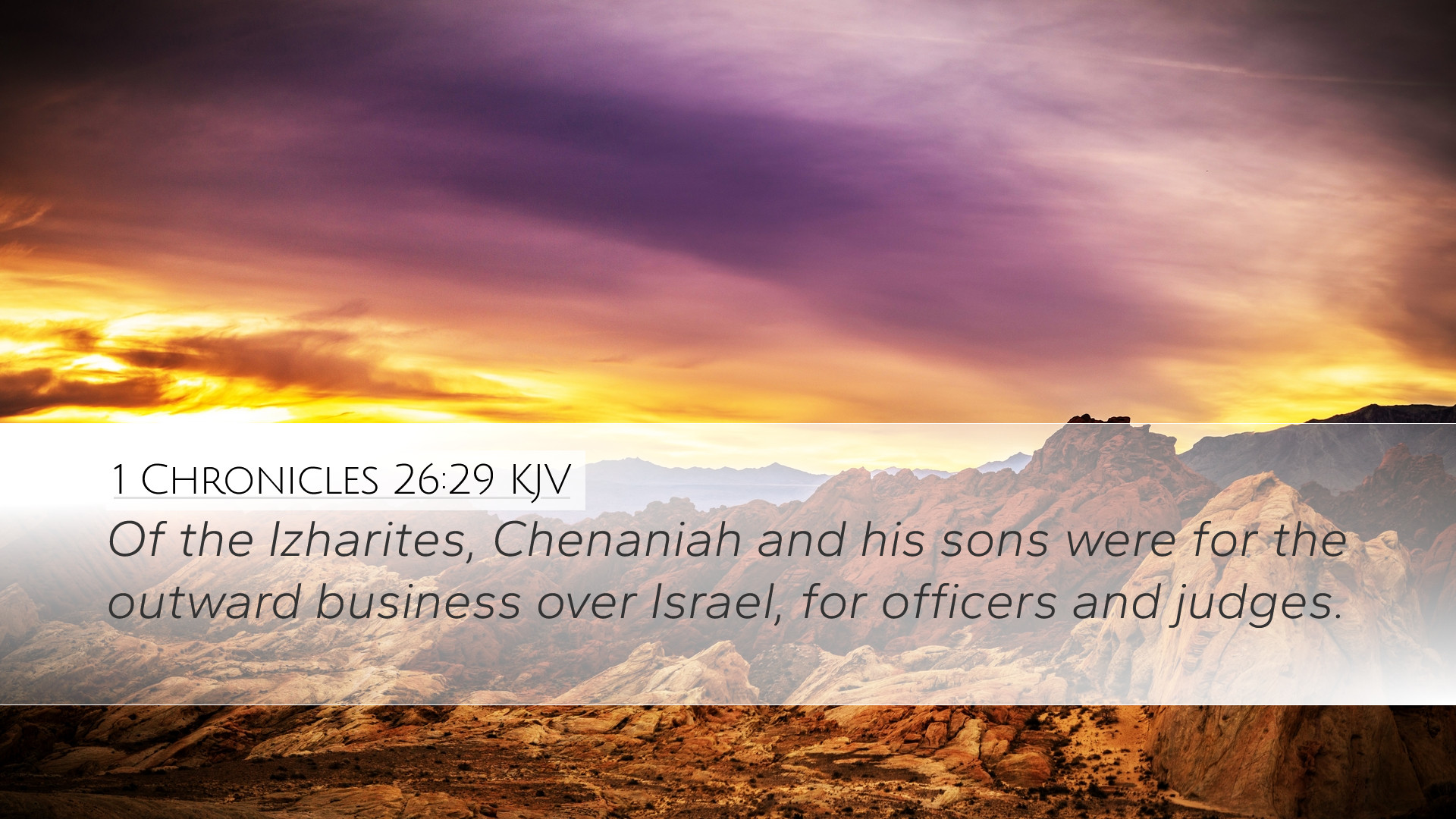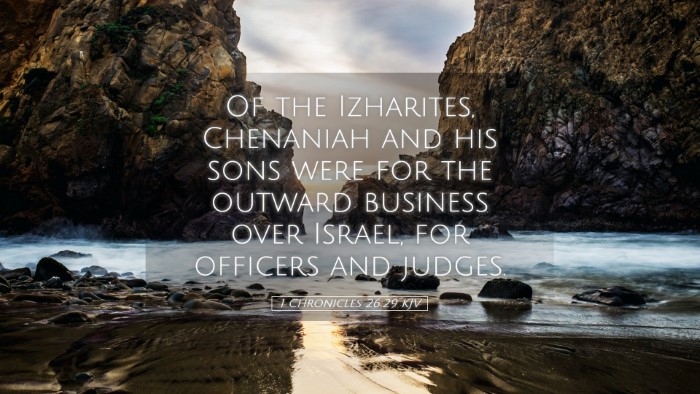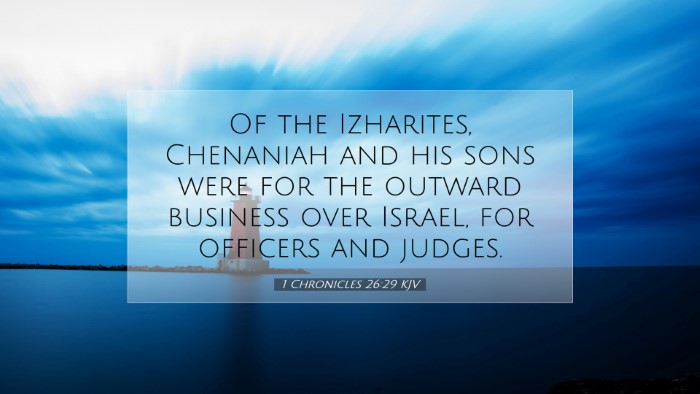Commentary on 1 Chronicles 26:29
Bible Verse: 1 Chronicles 26:29 - "Of the Hebronites, Jerijah was the chief; even of the Hebronites, according to the generations of his fathers."
Introduction
This verse, while seemingly straightforward, offers significant insights into the organization and responsibilities within the Levitical priesthood and reflects the broader themes of leadership and heritage in the biblical narrative. Historically, the Hebronites were an important clan within the Levites, and their genealogies hold key implications for understanding worship and service in Israel.
Contextual Background
The book of 1 Chronicles serves to recount the history of Israel, particularly focusing on the Levitical priesthood and the institution of worship following the establishment of the temple. Chronicles aims to emphasize God’s hand in Israel’s history and the role of the Levites in maintaining the worship of Yahweh.
Hebronites Overview
Hebron, located in the territory of Judah, was a city of great significance, not just geographically but genealogically. The Hebronites, being one of the divisions of the Levites, held key responsibilities in both temple service and administrative duties in the land.
Insights from Public Domain Commentaries
Matthew Henry’s Commentary
Matthew Henry illustrates that Jerijah, the chief of the Hebronites, signifies leadership emerging from a recognized lineage. According to Henry, this verse not only emphasizes the designation of leaders but also highlights the importance of family and heritage in God's plan. Henry points out:
- Spiritual Leadership: The role of Jerijah points to the need for godly leaders who can oversee the worship and administrative functions of the temple.
- Importance of Lineage: The listing of genealogies fulfills God’s covenant promises about preservation and continuity, proving that God remembers His faithful.
- Functionality of the Clergy: Henry discusses the necessity of having a well-structured Levitical order for effective worship and service.
Albert Barnes’ Notes
Albert Barnes emphasizes that the Hebronites played a crucial role in the historical narrative of Israel. He notes that:
- Roles in Society: These clans managed various responsibilities pertaining to the temple and the nation, reflecting the organizational structure God intended for Israel.
- Historical Significance: The verse is a reminder that history is essential for identity and worship; the record of Jerijah's leadership is connected to God’s covenant intentions.
- Leadership Criteria: Barnes highlights the characteristics of a good leader as portrayed in this verse—one who is recognized for his lineage and faithful service.
Adam Clarke’s Commentary
Adam Clarke offers a detailed explanation, observing that the leaders within the Levitical lines were chosen for their specific duties based on their genealogical heritage. Clarke provides thoughts such as:
- Divine Order: Clarke speaks to the idea of divine order in worship, indicating that God’s appointed means of worship should be adhered to by His people.
- Teaching the Next Generation: Clarke emphasizes the importance of passing down traditions and teachings to ensure continuity in worship practices.
- Relation to New Testament Ministry: He draws parallels between the Levitical roles in the Old Testament and church leadership structures in the New Testament, suggesting that God’s plan for orderly worship continues through history.
Theological Implications
The verse encapsulates several critical theological themes:
- God’s Sovereignty: The appointment of Jerijah illustrates that leadership within the church or community is established by God.
- Community and Identity: Understanding one's heritage is vital for establishing identity within the community of faith.
- Continuity of Worship: This verse highlights the necessity for maintaining the traditions and practices ordained by God, linking past faithfulness with present worship.
Application for Today’s Believers
While the historical context of this verse may differ from today, its principles remain applicable:
- Leadership in the Church: Modern churches can take guidance from the structured leadership demonstrated here, ensuring leaders are chosen based on spiritual integrity and calling.
- Understanding Heritage: Believers today should seek to understand their spiritual heritage, allowing history to inform their faith and practices.
- Commitment to Faithful Worship: The call to worship should be rooted in a commitment to following God’s ordained structures and teachings.
Conclusion
1 Chronicles 26:29 serves as an important reminder of God’s orchestration in establishing order among His people. Through the example of Jerijah and the Hebronites, we see principles of leadership, the importance of lineage, and the continuance of worship practices that resonate not just in the ancient context but also in the contemporary church. Engaging with these themes encourages diligent service in the house of God, a legacy for future generations, and an enduring commitment to God’s divine order.


